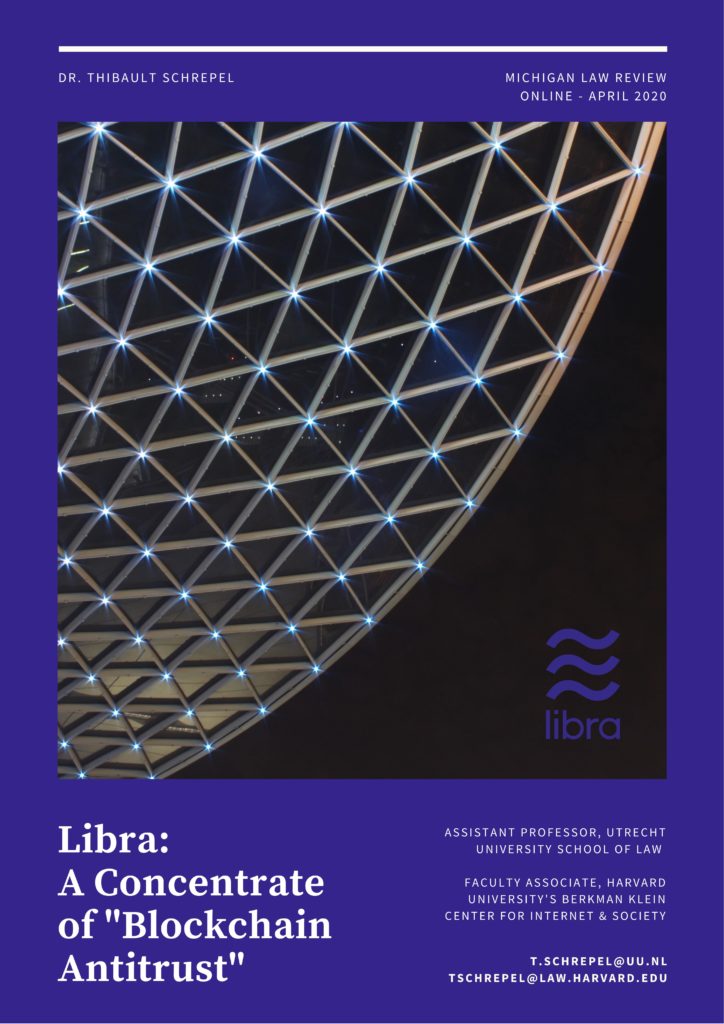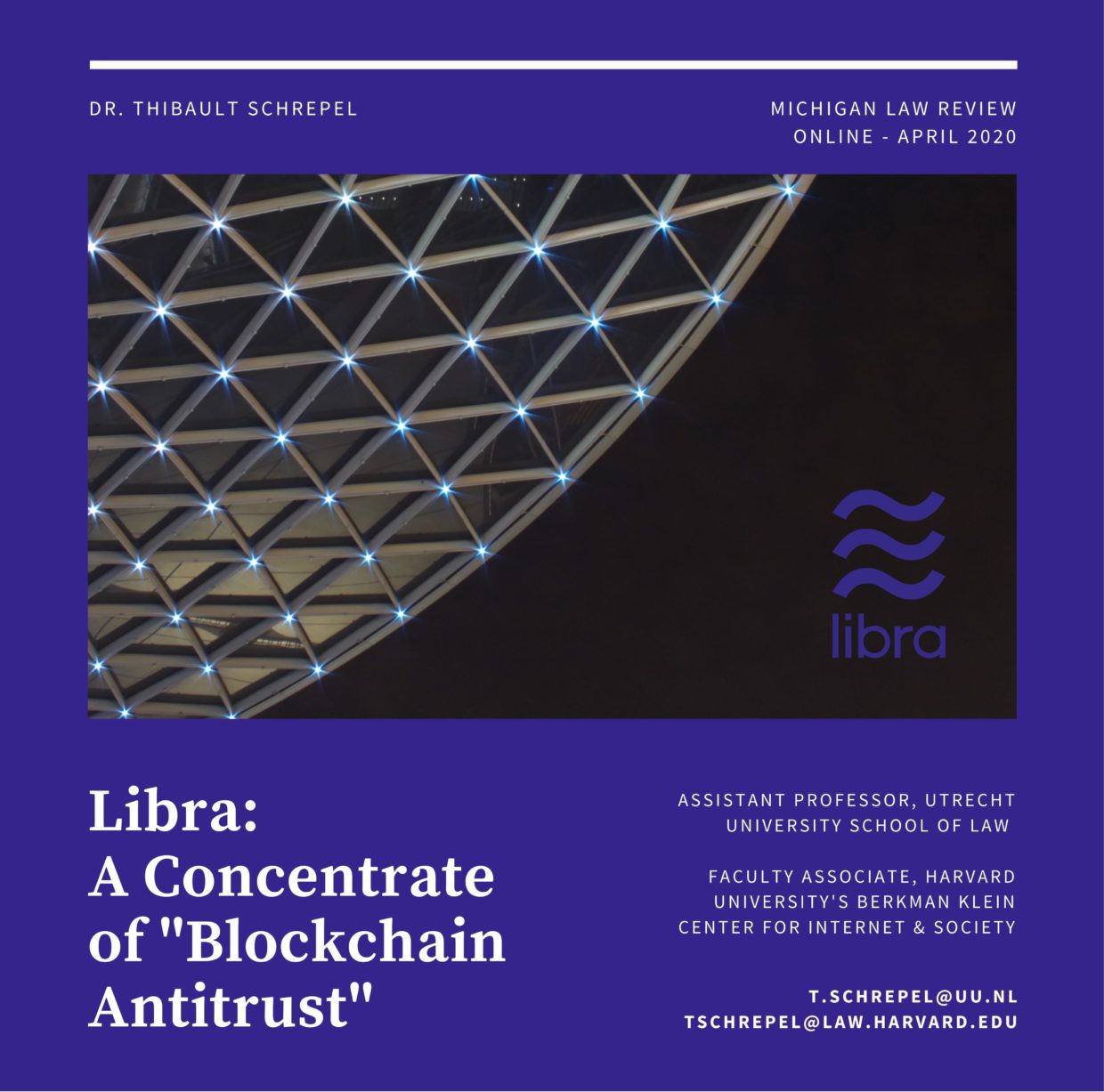CLICK HERE TO DOWNLOAD
Mark Zuckerberg introduced Libra to the world in June 2019 with the goal of “enabl[ing] a simple global currency and financial infrastructure that empowers billions of people.” Two months after, and without waiting for the project to be launched, the European Commission sent a questionnaire to various parties connected to Libra in order to investigate “potential anti-competitive behaviors.” The U.S. House of Representatives also conducted a series of hearings at the end of October 2019 questioning the intentions behind Libra.
Against this background, Part I of this Essay analyzes the type of governance that Libra is aiming for, as it indicates the nature and frequency of certain anticompetitive risks. Part II offers an assessment of the anticompetitive collusion and monopolization that Libra governance might yield. The discussion concludes by assessing the desirability of the adversarial approach adopted by antitrust agencies and governments thus far.


